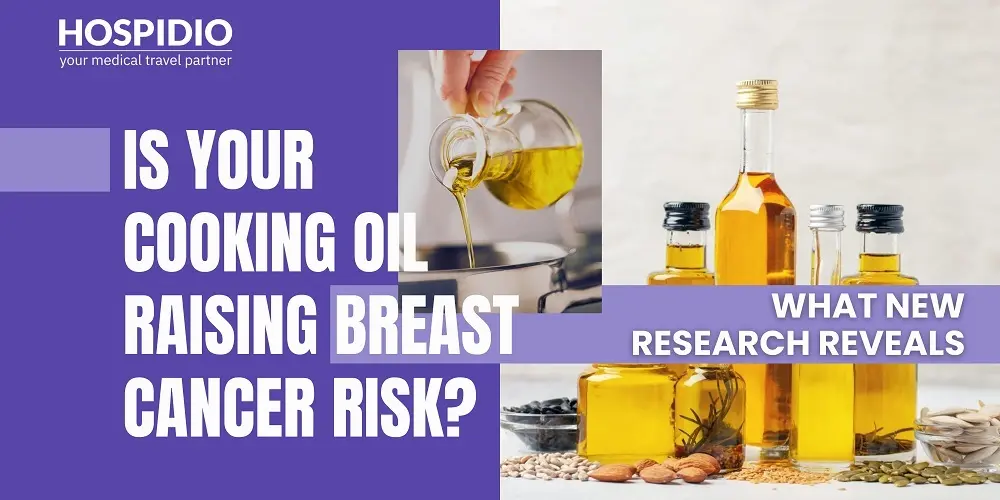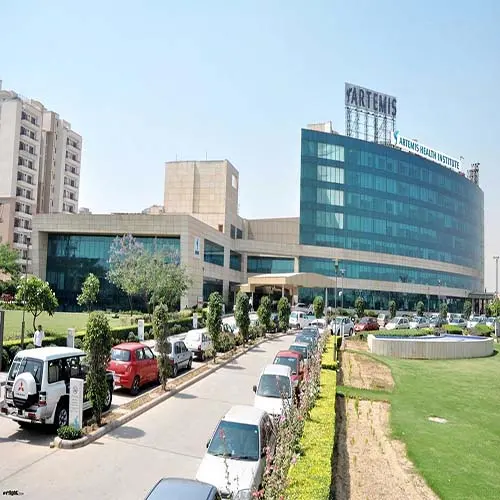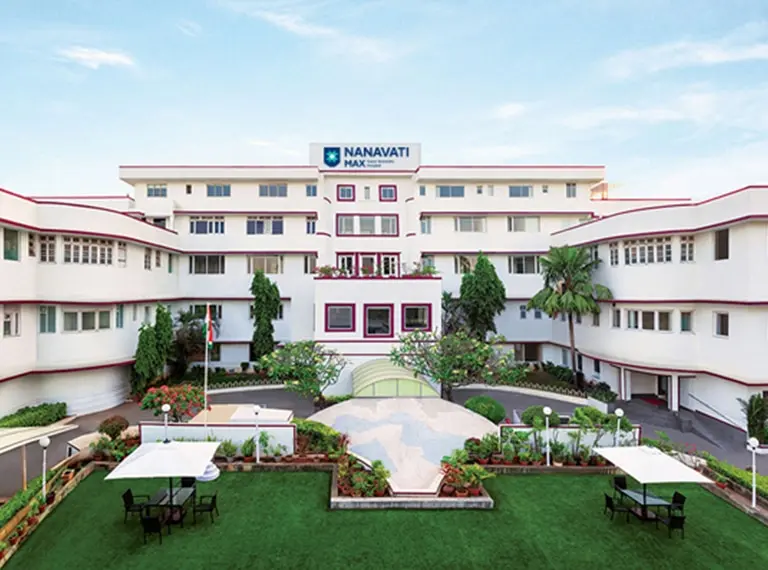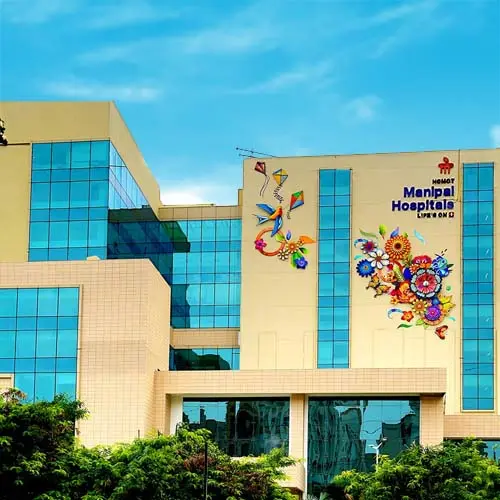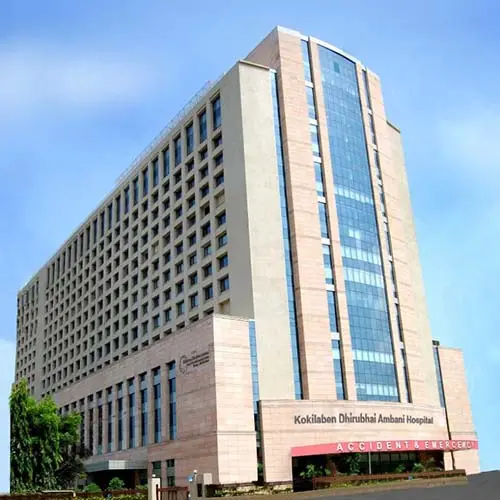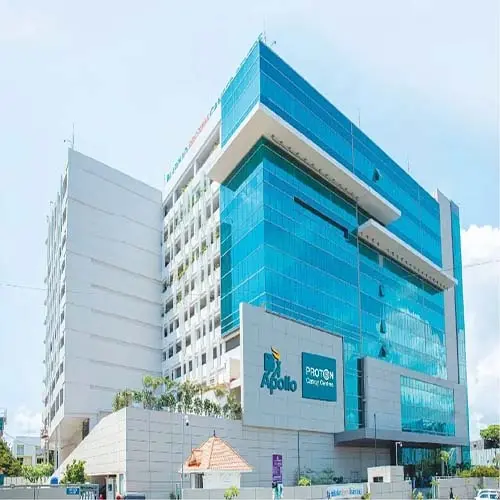In today’s health-conscious era, what we cook with is just as important as what we eat. While we focus on superfoods and clean eating, a silent ingredient in most Indian kitchens—cooking oil—has come under the spotlight. A recent study published in Science has linked linoleic acid, a major component in many vegetable oils, to the progression of an aggressive form of breast cancer.
As breast cancer rates rise worldwide, it becomes even more important to understand how daily choices like cooking oil can affect long-term health. This blog sheds light on the research findings, how you can reduce your risks, and what options are available if you or a loved one is seeking breast cancer treatment in India.
Breast Cancer Worldwide: A Rising Global Health Challenge
Breast cancer is now the most diagnosed cancer across the globe, overtaking lung cancer as the leading cancer type. The rise is not confined to any single region—it is a growing concern in both high-income nations and developing countries alike. Alarmingly, more women are being diagnosed at younger ages, often before menopause, with aggressive forms of the disease becoming increasingly common.
Several factors contribute to this global surge: lifestyle shifts such as sedentary habits, high-fat and processed diets, delayed childbirth, reduced breastfeeding, and exposure to environmental toxins. Amidst these well-known contributors, emerging research now points to dietary components—particularly certain types of fats like linoleic acid found in common cooking oils—as having a more significant role in breast cancer development than previously understood.
As global healthcare systems grapple with the increasing burden of cancer care, the spotlight is turning toward prevention—especially through everyday choices like diet and lifestyle.
Get a free cost estimate
What is Linoleic Acid and Why is it in the News?
Linoleic acid is an omega-6 polyunsaturated fatty acid commonly found in:
- Sunflower oil
- Safflower oil
- Soybean oil Corn oil
- Cottonseed oil
These oils are widely marketed as “heart-healthy,” but emerging studies suggest that overconsumption—especially in high-heat Indian cooking—may contribute to inflammation and cancer growth, particularly triple-negative breast cancer (TNBC), one of the most aggressive forms of the disease.
What the Research Shows
The Science study from Weill Cornell Medicine reveals that linoleic acid binds to a protein (FABP5) in TNBC cells, enhancing their growth and ability to spread. The effect is more pronounced when these oils are heated repeatedly, as is common in Indian households.
Preclinical studies suggest linoleic acid may:
- Promote tumor growth
- Suppress immune response
- Trigger oxidative DNA damage
- Increase the spread of cancer cells
Beyond Oils: What Else Affects Breast Cancer Risk?
While linoleic acid and cooking oils are now under scrutiny for their possible role in breast cancer progression, it’s important to understand that breast cancer is a multifactorial disease. Several biological, lifestyle, and environmental factors interact to influence a person's risk. A comprehensive view of these risk factors empowers individuals to take preventive steps and make informed decisions.
Genetic Predisposition (BRCA1/BRCA2 and Other Mutations)
Some women inherit mutations in specific genes—most notably BRCA1 and BRCA2—which significantly increase their risk of developing breast and ovarian cancers. Women with these mutations may have up to an 80% lifetime risk of breast cancer. Other genes such as TP53 and PALB2 are also linked to hereditary breast cancer syndromes. Genetic counseling and testing can help individuals with a family history assess their risk and take proactive steps like early screening or preventive surgery.
Hormonal Exposure and Reproductive History
Hormonal fluctuations over a woman’s lifetime have a strong impact on breast cancer risk. Factors such as early onset of menstruation (before age 12), late menopause (after age 55), not having children, or having a first child after age 30 can all increase exposure to estrogen—a hormone that can promote the growth of certain types of breast cancer. Long-term use of hormone replacement therapy (HRT) or oral contraceptives may also elevate the risk, especially when used without medical supervision.
Obesity and Physical Inactivity
Excess body fat, especially after menopause, is associated with higher levels of circulating estrogen and insulin—both of which can stimulate the development of hormone-receptor-positive breast cancer. Additionally, a sedentary lifestyle contributes to weight gain and metabolic imbalances. Studies show that regular physical activity—at least 150 minutes of moderate-intensity exercise per week—can significantly reduce the risk of breast cancer and improve overall well-being.
Unhealthy Diet and High Sugar Intake
Diets rich in processed foods, refined carbohydrates, trans fats, and added sugars have been linked to chronic inflammation and insulin resistance—two known contributors to cancer development. High sugar intake can also feed cancer cells by increasing glucose levels in the blood. Conversely, diets emphasizing whole foods, lean proteins, healthy fats, and fiber-rich vegetables may offer protective benefits against breast cancer and other chronic diseases.
Environmental Toxins and Hormone Disruptors
Exposure to endocrine-disrupting chemicals (EDCs) found in everyday items—such as plastic containers, pesticides, cosmetics, and household cleaners—can mimic estrogen in the body and interfere with hormone regulation. Chemicals like Bisphenol A (BPA), parabens, and phthalates have all been implicated in hormone-related cancers. Reducing contact with these substances and opting for safer, non-toxic alternatives is a key step in lowering cumulative exposure.
What You Can Do: 6 Practical Ways to Reduce Your Breast Cancer Risk
Reducing the risk of breast cancer isn’t about overhauling your entire life overnight—it’s about making consistent, informed choices that add up over time.
Here are six practical, science-backed strategies to help you protect your health and lower your risk of breast cancer:
Switch to Safer Cooking Oils
The type of oil you cook with can significantly impact your long-term health. Vegetable oils high in linoleic acid—like sunflower, soybean, and corn oil—may contribute to chronic inflammation when consumed in excess. Instead, opt for oils with healthier fat profiles:
- Extra virgin olive oil is rich in heart-healthy monounsaturated fats and antioxidants.
- Mustard oil, used moderately, contains beneficial fatty acids and natural compounds with anti-inflammatory properties.
- Ghee (clarified butter), when used in small amounts, is stable at high heat and free from harmful trans fats.
These alternatives not only support better health but also enhance the flavor of your meals.
Avoid Reheating and Reusing Cooking Oils
Reusing oil for deep-frying or repeatedly heating the same batch of oil can generate harmful compounds such as aldehydes and lipid peroxides—both linked to increased cancer risk. These toxic by-products can accumulate in the food you eat. To minimize exposure:
- Cook using fresh oil each time, especially when frying.
- Use lower heat methods such as sautéing, steaming, or baking whenever possible.
- Avoid commercial fried foods, which often involve reheated oils.
Small shifts in cooking techniques can make a big difference in reducing dietary toxins.
Balance Your Dietary Fats
Modern diets are often overloaded with omega-6 fatty acids while lacking omega-3s, leading to an imbalance that fuels inflammation. Aim to restore this balance by including more omega-3-rich foods, which have shown anti-cancer and anti-inflammatory benefits:
- Flaxseeds and chia seeds – rich in plant-based ALA omega-3s.
- Walnuts – a tasty, heart-healthy snack.
- Fatty fish like salmon, mackerel, and sardines – excellent sources of DHA and EPA.
Try incorporating these into your weekly meals to support hormone balance and cellular health.
Boost Antioxidant Intake with a Rainbow Diet
Antioxidants help neutralize harmful free radicals and reduce oxidative stress—a factor linked to DNA damage and cancer development. Eating a variety of colorful fruits and vegetables ensures a steady supply of vitamins, minerals, and phytonutrients:
- Berries (like blueberries, strawberries, and raspberries) are packed with cancer-fighting compounds.
- Cruciferous vegetables such as broccoli, cauliflower, and cabbage contain sulforaphane, known for its protective properties.
- Leafy greens like spinach and kale support detoxification and hormone regulation.
Aim to fill at least half your plate with plant-based foods at each meal.
Maintain an Active Lifestyle
Physical activity doesn’t just help you maintain a healthy weight—it also lowers levels of circulating estrogen and boosts your immune system. Studies show that women who exercise regularly have a 10–20% lower risk of developing breast cancer compared to those who are sedentary.
- Aim for at least 150 minutes of moderate exercise per week—like brisk walking, swimming, or yoga.
- Include strength training exercises 2–3 times a week to build muscle and support metabolism.
- Reduce sedentary time by taking short movement breaks throughout the day.
Even small increases in daily activity can have significant protective effects.
Get Screened and Know Your Body
Early detection remains one of the most effective strategies in the fight against breast cancer. Regular screening can help catch abnormalities before symptoms arise:
- Women aged 40 and above should schedule annual mammograms or as advised by a physician.
- If you have a family history of breast cancer, speak with your doctor about starting screening earlier or undergoing genetic testing.
- Practice monthly breast self-examinations to stay familiar with how your breasts normally look and feel, so any changes can be reported promptly.
When caught early, breast cancer is far more treatable—and often curable.
Top Cancer Specialists in India
Advanced Breast Cancer Care is Within Reach
If detected early, breast cancer is highly treatable. India is now home to some of the most advanced breast cancer treatment centers offering precision diagnostics, targeted therapies, and world-class oncology care.
Whether it’s surgical intervention, chemotherapy, radiation, or immunotherapy—India offers globally benchmarked treatments at a fraction of the cost, making it an attractive destination for medical travelers.
Patients often inquire about the breast cancer treatment cost in India, and while it depends on the hospital and treatment protocol, costs are significantly more affordable than in Western countries. This makes timely care accessible to both local and international patients.
Top Hospitals for Breast Cancer Treatment in India
How HOSPIDIO Supports You
At HOSPIDIO, we specialize in connecting patients to top cancer hospitals in India. From helping you understand treatment options to arranging travel, accommodation, and appointments—we make your journey smoother and stress-free. Whether you're from India or abroad, HOSPIDIO ensures:
- Access to NABH and JCI accredited hospitals
- Transparent cost estimates and guidance
- Full support during treatment and recovery
- Follow-up coordination post-discharge
Sanjana
Author
Sanjana Sharma is a certified diabetes educator with a solid academic background in nutrition and dietetics. Her qualifications include a BSc in Clinical Nutrition and Dietetics, an MSc in Foods and Nutrition from CCS University, a Diploma in Health and Education from IGNOU, and a certification from NDEP. Dedicated to helping patients manage their health through personalized care and education, she brings expertise and compassion to her work. Outside of counseling and writing, Sanjana loves staying updated with fashion trends, sharing corporate memes on Instagram, and, of course, thinking about food.
Guneet Bindra
Reviewer
Guneet Bhatia is the Founder of HOSPIDIO and an accomplished content reviewer with extensive experience in medical content development, instructional design, and blogging. Passionate about creating impactful content, she excels in ensuring accuracy and clarity in every piece. Guneet enjoys engaging in meaningful conversations with people from diverse ethnic and cultural backgrounds, enriching her perspective. When she's not working, she cherishes quality time with her family, enjoys good music, and loves brainstorming innovative ideas with her team.

